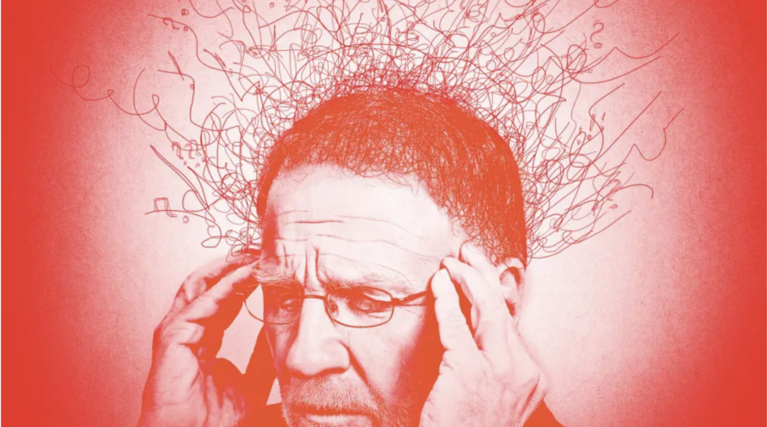You have head trash. I can say this with confidence because you are human and all humans have head trash.
Head trash is indiscriminate. Everyone from new advisors to CEOs to luminaries suffer from head trash. Carl Richards has spoken openly about his imposter syndrome, Michael Kitces shared how our coaching tanked his head trash to drive 10x growth, and I’ve openly shared how my outward success has been plagued by inner insecurities.
Head trash is a negative belief you hold about yourself, your abilities, or the world. Beliefs are nothing more than thoughts that we think over and over again until they become truth. These truths in turn define the thoughts we think, which drive our behavior, which produce the results we experience.
Our head trash shows up as the voices in our head, our inner roommates if you will. These voices operate from the shadows. We’re not even aware these negative thoughts are in control, humans operate on conditioned thinking 95% of the time. We only consciously take agency over our thoughts, behaviors and – ultimately – decisions, a scant 5% of the time.
Our head trash shows up with words like can’t, shouldn’t and don’t know how. It reminds us that we’re not smart enough, qualified enough, old or young enough, fill in your own personal brand of not-enough-ness here. It implies people won’t like us, that we don’t fit in, that making money makes us greedy, that we don’t have the time, that important conversations lead to conflict, that we must be perfect, that we never win, or that success has to be a never-ending struggle, to name a few.
Simply put, all negative emotions or experiences that happen persistently are an indication that something needs to be tended to. If you’re interested in tending to your own head trash, here’s a quick exercise to get you started:
- Step 1: Take Notice. Tune in to what’s taking place between your ears and take notice of what the voices in your head are saying.Adam’s voices said he wasn’t worth higher fees, couldn’t narrow his niche, and making changes would end in ruin.
- Step 2: Take Inventory. Once you’re aware of your inner dialogue, you can take inventory of it. Is what these voices speak true? Are they serving you? At what cost?Adam was profoundly impacted when he realized his imposter syndrome had kept him safe, but also from achieving his goal of adding $100,000 in revenue so his wife could quit her miserable job to stay home with their daughters.
- Step 3: Take Action. With insight, you can do the work of elevating your thought habits, behavior habits and your business habits in ways that produce profound results.
Adam raised his fees, narrowed his niche, nailed his story, put growth plans into gear and scaled up by efficiently leveraging technology and team.
- Step 4: Take it up a notch. When you get a handle on your head trash, you remove much of the resistance standing between you and your goals.
Adam’s wife quit her job one year after his decision to act. His revenue doubled within two years and tripled within three. His 50% growth rate is driven by a waiting list of high net worth prospects. He had time to get his pilot’s license, a lifelong dream, and flies weekly.
Be clear, your head trash isn’t defined by your size but by your symptoms. Last week I got a phone call from the three founding partners of a nearly half-billion-dollar firm. They have a large, growing firm and all the stress and complexity to go with it. In spite of their best efforts they just can’t tame the tiger. They’re not running their business, it’s running them. Surely, they said, there must be a way for them to drive success at the office without sacrificing their ability to be present fathers to their children. There is, I assured them, and it starts with an act of defiance.
By its very nature, taking charge of your head trash is an act of defiance, but in the best of ways. It’s consciously taking agency over your mind to challenge your conditioned thinking and expand your view of what’s possible. From this vantage point, you stand a far better shot at making thoughtful decisions – one’s driven by your goals, not your head trash.





